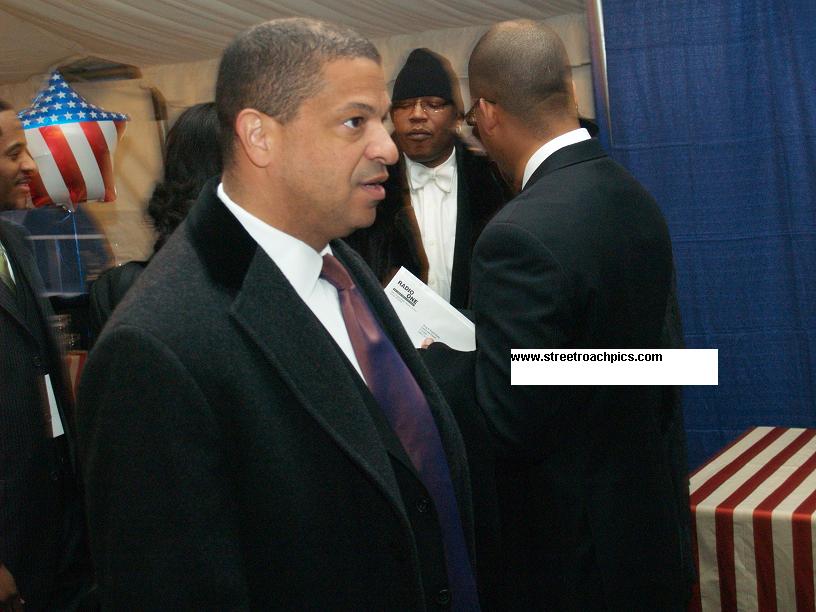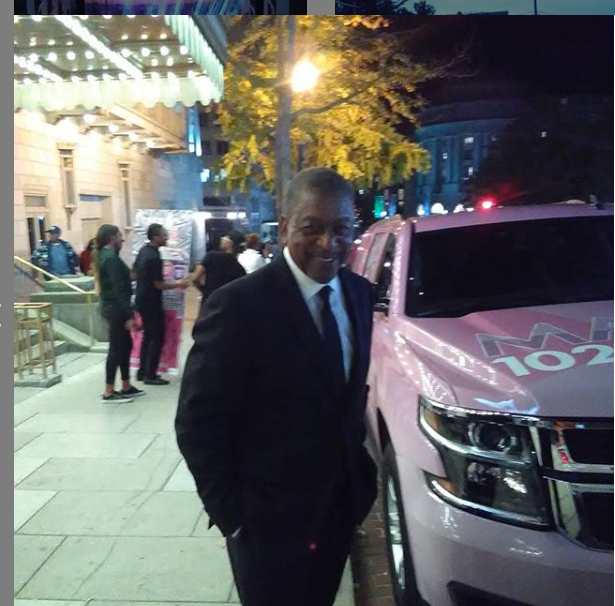Did Bob Johnson gangster Radio One back in the day?
Staff Writer
2019-03-05
.bugnews.bloggieblog.com .
 |  |
Robert Johnson aka Bob Johnson had alot of money and alot of power back in his days of running BET. At one point while Johnson was running the Black TV game, he tried to gangster Radio One which is now Urban One. This information came out through a recent interview that Alfreda Liggins did with an Urban One sub companies podcast. This interview can have papers and books written from it.
The podcast is called the GHOGH aka GO Hard or Go Home.
Jamarlin Martin: You bought back the remaining stake of TV One from Comcast. From my perspective, you’re a deal guy in terms of, you like to do deals, you want to think about scaling up in terms of, ‘hey, I got to be big to really matter’. Why haven’t you hooked up with BET, where, I could see the big agencies and the advertisers, they’re playing us against each other. Why haven’t the big boys, you and BET hooked up?
Alfred Liggins: I forgot what year it was. Actually, I do remember what year it was. It was right before BET sold to Viacom. So, I forgot what year it was, where they sold, but Bob Johnson tried to get me to merge with them.
Jamarlin Martin: You didn’t like the price?
Alfred Liggins: No, it didn’t even really come down to price. At the end of the day, probably economically, we had opportunities to sell the company a number of times.
Jamarlin Martin: For a really big number?
Alfred Liggins: The radio company got offered to be bought by, what at that time was a company called Evergreen, which became AMFM, which ultimately became Clear Channel. This guy, Scott Ginsburg, tried to buy the company. Mel Karmazin, who built Infinity and then ultimately ended up getting CBS, and was running Viacom, he tried to buy the company, and we didn’t want to sell. We liked what we were doing, we’re making money, we’re going to create value. And I never looked at it as, okay, I’m going to sell, $50 million or $100 million in my pocket, and then I’m done. Right? I always thought I’d go and build a big enterprise and stay in the game and make a lot more money down the line. Now, if I had taken those offers, I’d be wealthier today because the traditional media business ended up contracting. And actually a lot of the radio companies, including what was Clear Channel, now iHeartMedia, went bankrupt. Citadel went bankrupt. Inner City Broadcasting went bankrupt. Cumulus went bankrupt. Now we didn’t go bankrupt, but certainly our radio cashflows are half of what they were. And the only reason we’re around today Is because we did diversify. We got into the cable business. We’re in the gaming business. Now, as you know, we’re in the digital business. I don’t know where that’s gonna end up, but we’re in it. And so we did have an opportunity to match up with BET, when we were just a radio company. I said, ‘no, one day I’ll want to be in the TV business and the cable business’. And he said, ‘well, you can’t get in the cable business’. And I said, ‘well, why is that?’ And he said, ‘because my partner’s John Malone, and John Malone is never going to give you distribution to compete with BET. And so I was like…
Jamarlin Martin: Man, that sounds like a real boss move. But that’s how the game works.
Alfred Liggins: It was true, right? Yeah. But look, I get it. It makes sense. Why are you going to create more competition for an entity that you’re a part owner of? So Bob was right about that and then he said, ‘but I can get into the radio business’. So I think he toyed after that with buying…
Jamarlin Martin: He’s threatening you that he could come. ‘If you don’t take my deal, I’ll come after you, but you can’t come after me’.
Alfred Liggins: Basically. But he was right. And Clear Channel had bought AMFM and they had to spin off a bunch of stations, like 200 stations. And Bill Kennard was the chairman of the FCC, and he told them that ‘you should sell a lot of these stations to minorities’. And so they were selling all these stations and Bob was at the table and he was going to buy a bunch of stations, as we were, we were going to buy some stations too. But we were competing against him. Ultimately he decided, now economically it was the right decision, against buying radio. And I think they probably had ultimately decided that that time they had taken BET private, that they were even gonna sell BET. So he didn’t end up getting in the radio business. We bought all the stations that we wanted from Clear Channel, doubled the size of the company, we were public by then. But in the end, the better economic decision would have been for us to sell, because he’s sold BET for $3 billion. And if we’d been part of that sale, we’d have a lot of money In our pocket. But we’d also be starting over, right? We wouldn’t have our platform today, so if having a platform and building and staying in the game is important to you than it wasn’t the wrong decision. And then later on after we created TV One, I forget how many years we’d been on the air anyway, even gone into our fourth year, BET had reached out. Debra Lee reached out to us about buying TV One and we weren’t interested. We wanted to keep doing what we were doing. I’ve had several overtures from bigger strategics.